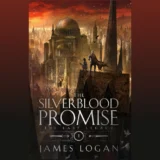They came because they were afraid or unafraid, happy or unhappy. There was a reason for each man. They were coming to find something or get something, or to dig up something or bury something. They were coming with small dreams or big dreams or none at all —Ray Bradbury, The Martian Chronicles
When I was but a sprite, and before I became an avid reader of books (I preferred comic books), I read Ray Bradbury’s The Martian Chronicles. It changed me. It changed what I thought of books and what I felt about the power of stories. It made me cry. And perhaps that was when I decided to become a writer. I wanted to move people as Bradbury had moved me.
The Martian Chronicles isn’t really about Mars. It’s about us. Who we are, what we are, and what we may become. What we inadvertently do—to others, and finally to ourselves—and how the irony of chance can change everything.
The 1970 Bantam book jacket so aptly calls The Martian Chronicles, “a story of familiar people and familiar passions set against incredible beauties of a new world … A skillful blending of fancy and satire, terror and tenderness, wonder and contempt.”
Written in the 1940s, the chronicles drip with a nostalgic atmosphere — shady porches with tinkling pitchers of lemonade, grandfather clocks, chintz-covered sofas. But longing for this comfortable past proves dangerous in every way to Bradbury’s characters — the golden-eyed Martians as well as the humans. Starting in the far-flung future of 1999, expedition after expedition leaves Earth to investigate Mars. The Martians guard their mysteries well, but soon succumb to the diseases that arrive with the rockets — recapitulating the tragedies that European colonization caused our indigenous peoples. Colonists appear on Mars, most of them with ideas no more lofty than starting a hot-dog stand, and with little respect for the culture they are displacing.
Bradbury weaves metaphor into everything he writes, from setting to a character’s name. I didn’t know this when I was a young girl, enthralled by his stories, his characters, his scenes and words. I just responded viscerally to what he’d created:
Rocket summer. The words passed among the people in the open, airing houses. Rocket summer. The warm desert air changing the frost patterns on the windows, erasing the art work. The skis and sleds suddenly useless. The snow, falling from the cold sky upon the town, turned to a hot rain before it touched the ground.
Rocket summer. People leaned from their dripping porches and watched the reddening sky.
The rocket lay on the launching field, blowing out pink clouds of fire and oven heat. The rocket stood in the cold winter morning, making summer with every breath of its mighty exhausts. The rocket made climates, and summer lay for a brief moment on the land…
What unfolds is a profound and tender analysis of the quiet power humanity can wield unawares. Bradbury paints a multi-layered tapestry of hopes and dreams through metaphor. To Bradbury everything a writer writes is metaphor.
Metaphor is powerful through perspective. It makes the ordinary strange and the strange ordinary, making life interesting again. Metaphor encourages interpretation by describing an indirect rather than a literal truth. Metaphor can give maximum meaning with a minimum of words (e.g., John’s office was a prison). Metaphors create new meanings through writing about personal feelings and experiences.
Metaphor is most powerful when tied to the overall theme or plotline of the story, providing tone and sometimes foreshadowing.
But, as writer Steve Almond warns us, “in the wrong hands [metaphors] become an assertion of the author’s talents, rather than an effort to immerse us in the world of his characters.” In such a case metaphors can actually distract the reader from the compelling truth being explored.
The appropriateness of a metaphor relies on a writer’s narrative voice, the type of story she is telling and the language she is using relevant to the genre. Metaphors have the power to distract readers from the most important words in the writer’s toolkit — verbs. Such over-extended metaphors or misused metaphors are often a sign of insecurity and a hallmark of novice writing. Here’s an example:
John strode into the aft deck and saw Aeryn and Crais embracing. He stopped, heart slamming like the staccato percussion of a cannon on his wounded soul.
If you eliminate the simile, here’s what you get:
John strode into the aft deck and saw Aeryn and Crais embracing. He stopped, heart slamming.
Removal of the simile activates the verb and focuses the reader’s attention on John’s visceral reaction. If a verb is powerful enough and appropriate, it eliminates the need for additional metaphor. The extended metaphor becomes redundant. “Heart slamming” already suggests percussive action. The implication rather than the literal description is provided for the reader who fills it in himself.










I agree. He changed my life. If I could come even close to that for one person, then I've done my job as a writer… 🙂
Best Wishes,
Nina
Bradbury is one of the greats. Nice analysis of his work.